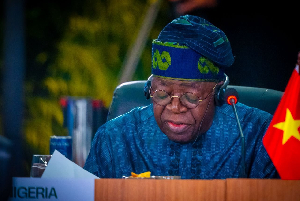President Bola Ahmed Tinubu has written to the House of Representatives, seeking approval for an additional $347 million external loan as part of the federal government’s 2025–2026 borrowing plan.
The loan, he said, is required to meet the increased funding needs of the Lagos-Calabar Coastal Highway, whose cost has reportedly risen from $700 million to $747 million.
The request was contained in a letter read on the House floor on Wednesday, July 17, by Speaker Abbas Tajudeen.
In it, the president stressed that the revised borrowing will ensure financial closure and guarantee the timely execution of the coastal highway, a project touted as crucial to Nigeria’s economic transformation agenda.
According to the president, the projects under the new borrowing plan were selected following “rigorous economic evaluations”, focusing on their potential for job creation, skill development, entrepreneurship, and poverty reduction.
Premium Times noted that Tinubu said that funding delays could threaten the delivery timeline of key national infrastructure projects.
Lawmakers have since referred the request to the Joint Committee on Finance, Aids, Loans and Debt Management for review.
The committee is tasked with examining the technical and financial justifications behind the proposal before it is put to a vote.
The $347 million loan request adds to a growing list of recent borrowing activities by the Tinubu administration. In November 2023, the president sought National Assembly approval for a $7.8 billion and €100 million loan to fund development projects.
Again in March 2025, he requested clearance for a $21.5 billion foreign loan and a ₦757.9 billion domestic bond to settle national pension liabilities—a plan the Senate later approved.
These approvals have contributed to Nigeria’s public debt stock reaching over ₦121 trillion (approximately $91 billion) as of March 2025, according to the Debt Management Office (DMO).
This figure translates to a debt per capita of over ₦540,000, assuming a population of 220 million, igniting worries about intergenerational debt transfer.
Despite the spike in external and domestic borrowing, the Tinubu administration maintains that concessional loans are necessary to close Nigeria’s infrastructure deficit and stimulate economic growth.
Officials argue that such borrowing boosts productivity and job creation when invested in capital projects.
They say this can improve Nigeria’s long-term debt-to-GDP ratio. However, economic analysts and civil society organisations have warned of the rising cost of debt servicing, which already consumes a significant portion of the national budget.
Critics say that unless revenue generation is dramatically improved, future administrations and citizens will be burdened with the consequences of today’s financial choices.
As the House deliberates Tinubu’s latest loan request, the broader question remains: How sustainable is Nigeria’s borrowing path?
For millions of Nigerians still grappling with inflation, unemployment, and failing infrastructure, the fear is that while the country borrows billions, ordinary citizens may end up paying in pain.
Business News of Thursday, 24 July 2025
Source: www.legit.ng













